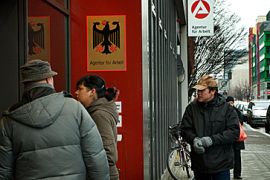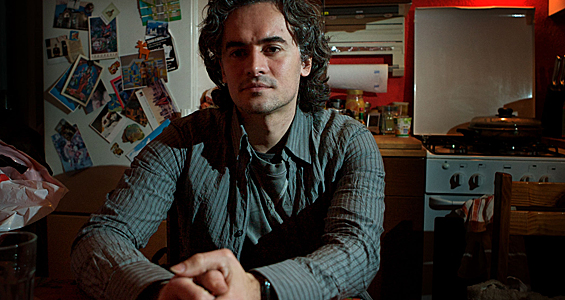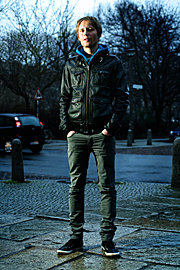Down and out in Berlin
The arts and marketing industries are bearing the brunt of Germany’s downturn.

 |
| Stoyan Kissiov is working unpaid at a ballet school in the hope of getting a teaching position |
Veronica is a teacher in Berlin who hosts a weekly group for German professionals to meet, talk and improve their English language skills.
The conversations can cover any topic but, lately, one issue is coming up with depressing frequency – unemployment.
One middle-aged manager, who lost his job due to “restructuring” at his workplace, talks of how hard it is to find a job in his 50s.
Others discuss their insecurities and their fears for the future of their children.
“It has become almost like a therapy group,” Veronica said.
“It is hard to correct people’s grammar when they are pouring their hearts out.”
Impending doom
Veronica’s conversation class is a snapshot of the German job market in 2009.
There have been no mass layoffs yet, but there is a sense of impending doom as the country heads into what is tipped to be its worst recession since World War II.
In its position as one of the world’s biggest exporters, Germany relies on a strong global economy to buy its manufactured goods such as cars and machinery.
As the global economic downturn begins to take effect, unemployment has risen for the past three months to a national rate of 7.8 per cent and economists predict an extra half million people will be jobless by the end of the year.
To stave off redundancies in tough times, the German government allows firms to cut their workers’ shifts rather than lay them off. The government then makes up part of the wage difference.
So far, this has prevented many layoffs, says Kai Carstensen, an economist from Munich’s Institute for Economic Research. But he doubts it will be enough.
The scheme does not help people trying to get into the job market, because opportunities have become scarce as German firms cut back on hiring.
“It’s really not a good time for newcomers,” says Peter Bofinger, a professor at the University of Wuerzburg.
Depressing situation
One of those newcomers is Oliver Mayer, a recent university graduate in business communication.
 |
| Mayer earned a degree in business communication |
Mayer, 31, has been looking for work in Berlin since January but his chosen field – advertising and marketing – is particularly sensitive to downturns.
“I’m finding it quite depressing,” he says.
“Communications and advertising are the first thing companies reduce when there’s a bad period so it’s logical that this industry is going to have fewer jobs right now.”
Mayer is expanding his search to other cities such as Hamburg and Munich, which would take him away from his family and his girlfriend, who has just established herself in the capital as a fashion designer.
“I hate the idea of a long-distance relationship and only seeing my girlfriend on weekends. My personal life is important to me,” he says.
If all else fails, Mayer says he will go back to the craft in which he did an apprenticeship during his teens: stone masonry.
Cultural cuts
At a job centre near Checkpoint Charlie, the old border crossing between east and west Berlin, Anna, 39, is looking for work on the internet.
“There’s short-term work, here and there, but I need something permanent,” she says.
“In that way, we’re becoming more Americanised with a lot of casual work with no security. That’s fine when you’re young, but it’s not good for your health as you get older.”
Though much of the pain is likely to be felt in traditional industries such as the car factories of Munich and Stuttgart, there are signs that the recession is creeping into other sectors as well.
With the government committing more than $100bn to two stimulus packages, funding for sectors such as the arts will be tighter than ever.
Stoyan Kissiov, 37, a classically-trained dancer is working without pay at the State Ballet School in Berlin in the hopes of eventually securing a teaching position.
Six months ago, when the financial crisis had not yet hit, Kissiov had been working as a dancing instructor in Trier, a 750km distance away from his wife Amy Share-Kissiov and their son Aaron.
“It was awful,” he says. “Amy had to do everything herself and I felt I was missing a lot of Aaron’s most important moments growing up.”
With the economy continuing to worsen, his family knows that things are only going to get more difficult.
Amy was recently told by a theatre director, who had been to a government committee hearing on arts funding, that there would be scant money in the foreseeable future.
“The arts is the first sector to be cut back,” Amy says. “It’s going to be a tough time for us.”